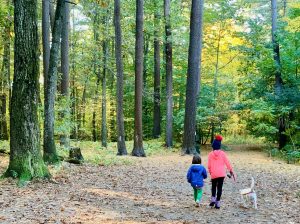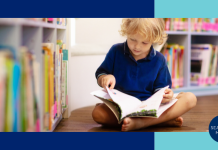“We live in a world in which we need to share responsibility. It’s easy to say, ‘It’s not my child, not my community, not my world, not my problem.’ Then there are those who see the need and respond. I consider those people my heroes.” – Fred Rogers

It happened at a Wedding…
Wedding season is in full force after two years of a pandemic. I was assigned a seat in a round table of 12, none of whom I knew personally. Two teenagers sat at the table with me, a boy about 14 years old and a girl who was a few years older.
I attempted small talk with the boy at one point early in the dinner. He didn’t seem interested in speaking to me I thought, though his sister jumped at the chance to answer. I carried on observing the wedding goers. After all, what better place to people-watch than a large wedding of new acquaintances.
After a while I noticed that I seemed to be drawn to the siblings at my table. I hadn’t been to an event of any sort without my children in a long while and I missed hearing their voices and their banter.
The sister was nudging her brother. As he was fidgeting with his tie and the three forks on his place setting, she would model herself to him by clasping her hands together on her lap. Each time a new plate came to the table, she instructed him on which utensil to use. When his steak came out, she cut the meat for him before her own.
The siblings’ parents were sitting at a nearby table enjoying conversation and company with family and friends. Notably, the older teenager took it upon herself to care for her brother in every little detail. Not once did the parents intervene – the sister knew what to do and how to help. The parents never asked her to help.
The Connection I Made
I had an instant memory of my children, who are sisters, but much younger than these siblings at the wedding. Recalling this memory, my 11-year-old, S, was having a tough day. She was dysregulated and her emotions were heavy:
We were winding down for the night and my daughter S was crying. She said, “No one loves me”. This hurts to hear a child say, but I know she had had a long day. I know she doesn’t believe that.
My 5-year-old, R, was playing on the floor nearby. S says her statement again, still crying. Quietly, not knowing I heard, my younger daughter R replies “That is actually not true.”
Within seconds, S stops crying. “it’s not true?” She says.
R continues to play. She meant what she said. “It is not true, we love you”.
R is my 5-year-old. Just like the sibling at the reception table, R wasn’t asked to help or comfort. The sister at the reception wasn’t asked to help cut the steak, like R wasn’t asked to comfort her own sister in need.
These heroes – the ones who see the need and respond – are the siblings of children with disabilities. They are empathetic and inclusive from young childhood because of their family life at home. They understand the need of shared responsibility in an inclusive community and an inclusive world.
Supporting the Child
For those who resonated with this story, in particular about my older daughter, you can find more information on the specific types of childhood anxiety here.
Supporting the Siblings
For those raising children with disabilities and their siblings, I encourage you to investigate the Sibling Support Project.
Don Meyer, a graduate student of Special Education from the University of Washington, recognized the important role of siblings and the needs that came with this role. There was a lack of supports and therapy needed for siblings.
“In 1990, Don created the Sibling Support Project, the first national program in the U.S. dedicated entirely to recognizing and promoting the important roles that siblings play in their families and communities, and to creating opportunities for brothers and sisters of all ages to receive the information and resources they need to support their families and themselves.” – The Sibling Support Project.
SibShops
SibShops is a program that stemmed from the Sibling Support Project. This program aims to connect children with others who are going through similar experiences, having a sibling with special needs.
Virtual Support for Siblings of Children with Disabilities
Though we do not currently have a SibShop program in person in the Seacoast, there is a similar virtual program for both parents and siblings of children with disabilities: Supporting Siblings in 2023. This meeting is held virtually on the first Thursday of each month, starting at 5:30pm.
Supporting Siblings in 2023 is a monthly meeting hosted by the UMass Chan Medical School or Psychiatry and the Parent/Professional Advocacy League, and the Massachusetts Psychiatry Access Program. This meeting is intended for caregivers and siblings of youth with autism, developmental disabilities, and/or mental health issues. Siblings will talk and connect with other peers who may have a similar home life. They will have the opportunity to learn coping skills and talk about what it’s like to have a sister or brother with differences.
To learn more about Supporting Siblings in 2023 or to sign up, call (857) 523-1145 or email emily.rubin@umassmed.edu.
Follow along for more support and resources for our children.










